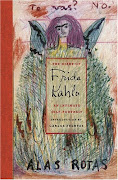Anthology texts to read:
- Primo Levi: from If This is a Man (1958)
- Marcel Proust: from Swann’s Way (1913)
I'd like to argue that from the very beginning, Memory has been inextricably bound up with the Arts: all the Arts.
The ancient Greeks believed in nine Muses, divine daughters of Zeus, King of the gods, and the goddess Mnemosyne [Memory]. The exact line-up (and even the number) is disputed, but it’s generally thought to be:
- Calliope (beautiful speaker): muse of epic or heroic poetry
- Clio (glorious one): muse of history
- Erato (amorous one): muse of lyric, love and erotic poetry
- Euterpe (well-pleasing): muse of music and lyric poetry
- Melpomene (chanting one): muse of tragedy
- Polyhymnia (hymn-singer): muse of sacred song and oratory
- Terpsichore (delighting in dance): muse of choral song and dance
- Thalia (blossoming one): muse of comedy and pastoral poetry
- Urania (celestial one): muse of astronomy
That's all very well, but what does Memory mean to you? All this talk of muses may sound a bit out of date, really. Let's take another angle on it, then. Here's a poem by Salvatore Quasimodo, who won the Nobel prize for literature in 1959:
Italy is My Country
The more days move off into distance
scattering themselves, the more they return
to hearts of the poets. There fields
of Poland, the Kutno plain with hill of corpses
burning in clouds of naphtha, there
barbed wire fences quarantining Israel,
refuse soaked with blood, the fever-pitch uprising,
the chains of wretches dead long ago,
struck down in their trenches dug by their own hands,
Buchenwald is there
that mild-mannered beech woodwith its accursed ovens: Stalingrad
and Minsk with its marshes and rotten snow.
Poets do not forget. Oh hordes of the lowly,
the conquered, those forgiven out of pity!
All things may pass, but the dead do not
sell themselves. My country is Italy,
felt to be alien more than estranged. I sing
the people, also their grief
muffled by sound of the sea, the mothers’
crystal-clear mourning: I sing the life of my country.
Il mio paese è l’Italia (1946)
[trans. Kendrick Smithyman]
"Poets do not forget." There was a good deal that people wanted to forget at the end of the Second World War - were desperate to forget, in fact. His contention, though, is that it doesn't really do any good to try to dismiss things from your mind. You may actually achieve a partial success, but who knows what effect those things are having on you under the surface, on your subconscious mind?
I don't think he means so much to set poets apart as a kind of superior race, but to see the act of poetry and the act of remembrance as synonymous. Poetry may be a way of disciplining and controlling memory, but it depends on it for its validity and power.
I've asked you to read texts by two authors for today: the Italian Primo Levi and the Frenchman Marcel Proust. They could hardly be more different: in background, upbrining, opinions, and literary style. What they do have in common is their obsession with memory, its character and implications.
it's tempting to prefer one to the other: to call Levi clearer, more "honest," perhaps. You may (very legitimately) feel that his memories of the death-camp Auschwitz are worth more than Proust's profound and complex insights into the social positioning of French salon society in the period before the First World War. That's a matter of taste. What I'd like to argue, though, is that too-hasty value judgements may obscure the use of both of these writers to you when you start to make your own series of decisions about how to present your own memories, your own repertoire of perception and experience.
Bibliography:
- Se questo è un uomo (1947)
[If This Is a Man (1958) / US: Survival in Auschwitz (1959)] - La tregua (1963)
[The Truce (1965) / US: The Reawakening] - Storie naturali (1966)
[The Sixth Day and Other Tales (1990)] - Vizio di forma (1971)
[The Sixth Day and Other Tales (1990) / A Tranquil Star (2007)] - Il sistema periodico (1975)
[The Periodic Table (1984)] - L'osteria di Brema (1975)
[Collected Poems (1988)] - Lilìt e altri racconti (1978)
[Moments of Reprieve (2001) / A Tranquil Star (2007)] - La chiave a stella (1978)
[The Wrench (1986) US: The Monkey's Wrench] - La ricerca delle radici (1981)
[The Search for Roots: A Personal Anthology (2001)] - Se non ora, quando? (1984)
[If Not Now, When? (1986)] - Ad ora incerta (1984)
[Collected Poems (1988)] - L'altrui mestiere (1985)
[Other People's Trades (1989)] - I sommersi e i salvati (1986)
[The Drowned and the Saved (1988)] - Racconti e Saggi (1986)
[The Mirror Maker (1989)] - Conversazioni e interviste 1963–1987 (1997)
[Conversations with Primo Levi (1989) / The Voice of Memory: Interviews, 1961-1987 (1990)] - Opere (1997)
[The Black Hole of Auschwitz (2005)] - [with Leonardo de Benedetti] Auschwitz Report (1946)
[translated into English, 2006] - A Tranquil Star: Stories
[translated into English, 2007]
 [In Search of Lost Time]
[In Search of Lost Time]À la recherche du temps perdu (1913-27)
[Remembrance of Things Past (1922-30)]
- Du côté de chez Swann (1913)
[Swann's Way] - À l'ombre des jeunes filles en fleurs (1919)
[Within a Budding Grove] - Le Côté de Guermantes, 2 vols (1920/21)
[The Guermantes Way] - Sodome et Gomorrhe, 2 vols (1921/22)
[Cities of the Plain] - La Prisonnière (1923)
[The Captive] - Albertine disparue (1925)
[The Sweet Cheat Gone] - Le Temps retrouvé (1927)
[The Past Recaptured]
•
Workshop 1:
'This is the indelible place you lived in'









No comments:
Post a Comment